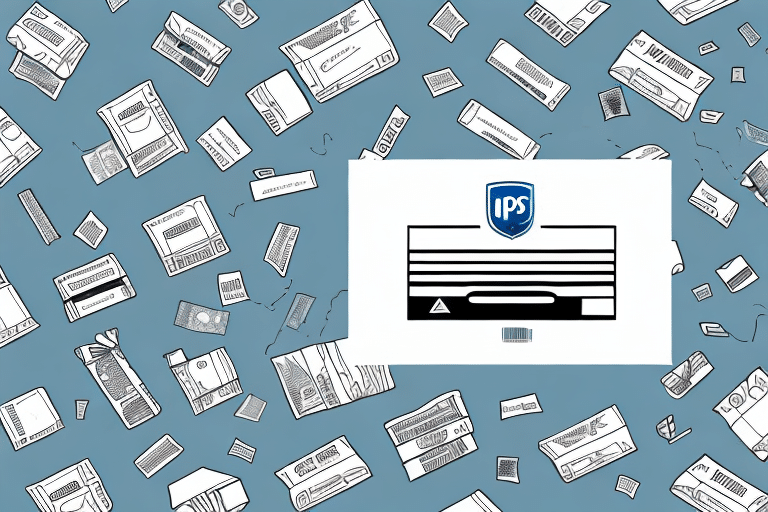Importance of Carrier Contracts for Ecommerce Growth
Carrier contracts are fundamental for ecommerce businesses in the growth phase, offering negotiated rates that significantly reduce shipping costs compared to standard published rates. According to a report by Forbes, effective shipping strategies can enhance profitability by up to 30%. These contracts enable businesses to offer competitive shipping rates, diversify shipping options—including expedited and international services—and enhance customer loyalty and retention.
Selecting the Right Carrier for Your Ecommerce Business
Choosing the appropriate carrier is a critical decision that influences delivery efficiency, customer satisfaction, and overall operational costs. When evaluating carriers, consider the following factors:
- Shipping Network Coverage: Ensure the carrier covers all your target regions, both domestically and internationally.
- Delivery Times: Assess the carrier’s ability to meet your delivery time promises.
- Pricing Structure: Compare rates and understand the pricing models to find the most cost-effective option.
- Customer Service: Reliable customer support can resolve issues swiftly, minimizing disruptions.
Sustainability Practices
With increasing consumer focus on environmental responsibility, opting for carriers with strong sustainability practices can be a significant advantage. Look for carriers that:
- Use alternative fuels and energy-efficient vehicles.
- Implement optimized routing systems to reduce carbon emissions.
- Offer carbon offset programs.
Research by the GreenBiz highlights that eco-friendly shipping options can enhance brand reputation and appeal to environmentally conscious consumers.
Negotiating and Managing Carrier Contracts
Effective negotiation of carrier contracts can lead to substantial savings and improved service levels. Here are key considerations:
Negotiating Terms and Conditions
When negotiating, focus on securing lower shipping rates, waived fees, and better service guarantees. Prepare by researching industry benchmarks and understanding your shipping volume and patterns.
Contract Length and Flexibility
While longer contracts may offer stability, shorter contracts provide greater flexibility to renegotiate terms as your business evolves. Balance the need for security with the ability to adapt to changing circumstances.
Managing Multiple Carrier Relationships
For businesses utilizing multiple carriers, effective management is crucial to avoid confusion and ensure consistent service. Implement a centralized management system to track performance metrics and maintain clear communication channels with each carrier.
Understanding Carrier Pricing and Fees
Carrier pricing is influenced by various factors, including package weight, dimensions, destination, and service level. Additionally, accessorial charges—fees for services beyond standard delivery, such as delivery to remote areas or handling oversized packages—can impact overall costs.
Market Conditions and Fuel Surcharges
Carrier rates are subject to fluctuations based on market conditions and fuel prices. During peak seasons, rates may increase due to high demand, and carriers often apply fuel surcharges when fuel prices rise. Staying informed about these variables can help you adjust your shipping strategy to minimize costs.
Studies from the American Petroleum Society indicate that fuel prices can significantly influence carrier costs, making it essential to factor these into your budgeting and pricing strategies.
Strategies for Reducing Shipping Costs
Implementing effective strategies can lead to significant savings in shipping expenses:
- Consolidate Shipments: Combining multiple orders into a single shipment can reduce per-package costs.
- Optimize Packaging: Use appropriately sized packaging to minimize dimensional weight charges.
- Diversify Carrier Options: Utilize multiple carriers to take advantage of the most competitive rates for each shipment.
Additionally, regularly reviewing and updating your carrier contracts can uncover opportunities for better rates and terms as your business scales.
Enhancing Customer Experience Through Carrier Contracts
Your carrier contracts directly influence the shipping experience your customers receive. Key aspects include:
Reliability and Tracking
Reliable carriers ensure timely deliveries, which is pivotal for customer satisfaction. Providing tracking information allows customers to monitor their orders, reducing inquiries and enhancing transparency.
Shipping Options
Offering a variety of shipping options, such as expedited and international shipping, caters to diverse customer needs and can improve overall satisfaction and loyalty.
Avoiding Common Mistakes in Carrier Contracts
When finalizing carrier contracts, it's crucial to steer clear of common pitfalls that can lead to unexpected costs or service issues:
- Ignoring Accessorial Charges: Fully understand all potential fees to avoid surprises.
- Misunderstanding Delivery Times: Ensure the carrier can consistently meet promised delivery windows.
- Overlooking Contract Flexibility: Include renegotiation clauses to allow adjustments as business needs change.
Assessing Carrier Reputation
Evaluate carriers based on their reputation for customer service and reliability. Reading reviews and seeking feedback from other businesses can provide valuable insights into a carrier’s performance.
Future-Proofing Your Carrier Contracts
As your ecommerce business grows, your shipping needs will evolve. To accommodate future growth:
- Scalability: Ensure your carrier can handle increased shipping volumes without compromising service quality.
- Flexible Terms: Negotiate contracts that allow for adjustments in service levels and pricing as your business scales.
- Integration with Technology: Utilize carriers that offer robust integration with your ecommerce platforms and shipping software.
Leveraging Technology in Carrier Contract Management
Technology plays a vital role in optimizing carrier contracts and shipping operations. Implementing carrier management systems can provide:
- Real-time shipment tracking and visibility.
- Automated reporting and analytics to monitor carrier performance.
- Integration with ecommerce platforms for seamless order processing.
Tools like ShipBob and ShipStation offer comprehensive solutions for managing multiple carrier relationships and optimizing shipping workflows.
Case Studies: Successful Optimization of Carrier Contracts
Numerous ecommerce businesses have successfully optimized their carrier contracts to achieve significant cost savings and enhanced customer satisfaction. For example, Shopify showcases how companies leveraging multiple carriers and negotiating favorable terms have reduced shipping costs by up to 20%, while improving delivery times and customer feedback.
By analyzing these case studies, businesses can gain actionable insights into effective contract negotiation, carrier selection, and the integration of technology to streamline shipping operations.
Conclusion
For ecommerce businesses in the growth phase, optimizing carrier contracts is essential for controlling shipping costs, enhancing customer satisfaction, and supporting scalable operations. By carefully selecting carriers, negotiating favorable terms, understanding pricing structures, and leveraging technology, businesses can build a robust shipping strategy that drives profitability and fosters long-term growth.






















